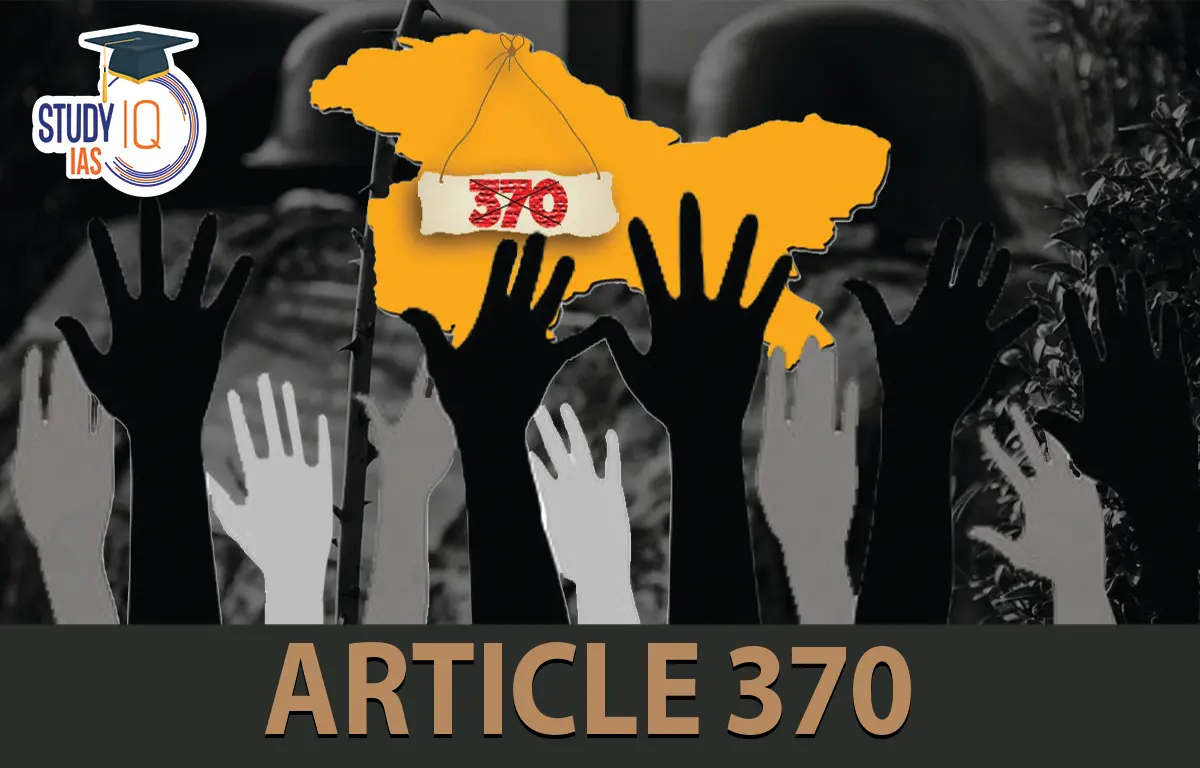Article 370 Abolished: Legal Victory, Political Scars for India

In a landmark judgment on December 11, 2023, a five-judge Constitution Bench of the Supreme Court of India unanimously upheld the abrogation of Article 370 of the Indian Constitution, which granted special status to the state of Jammu and Kashmir. This verdict, delivered almost four years after the controversial abrogation by the Indian government in 2019, marks a significant turning point in the history of the region.
What was Article 370?
Article 370, enacted in 1949, was a unique provision in the Indian Constitution that granted Jammu and Kashmir a distinct status within the Union. It allowed the state to have its own constitution, a separate flag, and autonomy over its internal administration, including control over its permanent residents’ rights, land ownership, and businesses. This special status arose from the historical context of Jammu and Kashmir’s accession to India in 1947, amidst the partition of the subcontinent.
 Protestors and activists belonging to the Alternative Law Forum and other left wing organizations take part in a protest in reaction to the government scrapping Article 370 that granted a special status to Jammu and Kashmir.(AFP Photo)
Protestors and activists belonging to the Alternative Law Forum and other left wing organizations take part in a protest in reaction to the government scrapping Article 370 that granted a special status to Jammu and Kashmir.(AFP Photo)The Abrogation and its Aftermath:
In August 2019, the Indian government, led by the Bharatiya Janata Party (BJP), invoked a contentious legal procedure to abrogate Article 370 and its associated provisions, including Article 35A which defined the rights of permanent residents. This move sparked widespread protests and condemnation within Kashmir and internationally. Critics argued that the abrogation violated democratic principles, undermined the autonomy of Kashmiris, and had the potential to exacerbate the long-standing conflict in the region.
The Supreme Court Verdict:
The Supreme Court’s unanimous judgment, spanning over 500 pages, addressed the various legal challenges to the abrogation. The court held that the President of India had the constitutional power to issue the Presidential Order abrogating Article 370, and that the procedure followed by the government was valid. The court also affirmed the abrogation of Article 35A, but it left open the possibility of the Jammu and Kashmir legislature enacting future laws to protect the rights of permanent residents.
“The abrogation of Article 370 is a legal victory, but its true impact will be measured in the hearts and minds of the Kashmiri people. The scars of this decision will run deep, and only time will tell if India can heal them.”–Arundhati Roy, Author
Implications of the Verdict:
The Supreme Court’s verdict has far-reaching consequences for Jammu and Kashmir and India as a whole. While the BJP government hailed the decision as a vindication of its actions. And a step towards national integration, critics remain concerned about its impact on the region’s autonomy and the rights of Kashmiris. The verdict is likely to fuel further debate and political maneuvering within India. Also could have significant implications for the ongoing security situation in Kashmir.
Uncertainties and Challenges:
While the verdict provides legal clarity, the situation in J&K remains complex. The region has witnessed heightened security concerns, ongoing political tensions, and concerns about the impact on the local population. Addressing these challenges and ensuring a smooth transition will be crucial in the coming months and years.
The Supreme Court’s decision on Article 370 is a significant legal and political development. While it brings closure to the legal challenge, the full impact on J&K and the broader political landscape remains to be seen. The road ahead will require careful navigation, dialogue, and a commitment to addressing the concerns of all stakeholders in this sensitive region.Only time will tell how this landmark decision will ultimately impact the lives of the people of Jammu and Kashmir and the future of the Indian
“The abrogation of Article 370 is a blow to Indian democracy and federalism. It sets a dangerous precedent for the unilateral abrogation of constitutional rights and undermines the trust of marginalized communities.”- Kavita Krishnan, ActiviST

- Art
- Causes
- Best Offers
- Crafts
- Dance
- Drinks
- Film
- Fitness
- Food
- Spellen
- Festival
- Gardening
- Health
- Home
- Literature
- Music
- Networking
- Other
- Party
- Religion
- Shopping
- Sports
- Theater
- Wellness



